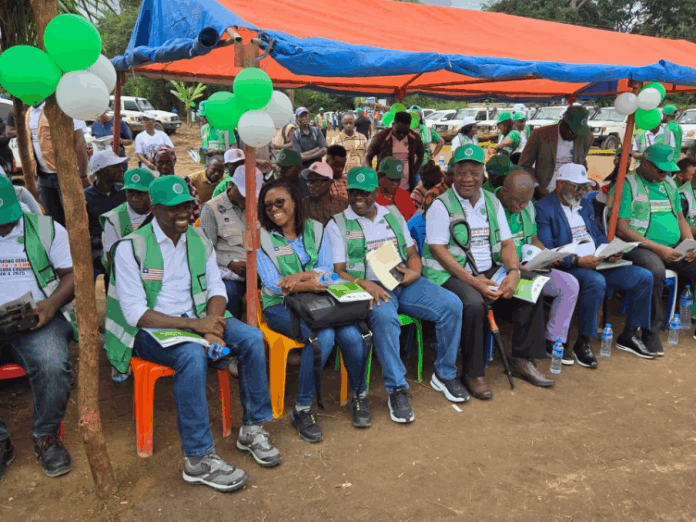In a quiet town of Bakuma, nestled deep within the Voinjama District, a groundbreaking ceremony brought more than just government officials and community leaders together; it sparked a long-awaited dream.
As the sun beat down on the rust-black soil, women in colorful wrappers sang traditional songs, young people waved their hands, and the elders looked on with cautious hope. For the first time in generations, electricity, clean, affordable, and reliable, was no longer a distant promise. It was becoming a reality.
At the heart of the promise is a 10.6 million United States Dollars electrification project, funded by the World Bank and implemented by the government of Liberia through its Rural Renewable Energy Agency (RREA). The centerpiece, 4.0 megawatt power solar plant paired with a 9.4MWh battery energy storage system a hybrid mini-grid that, when completed, will light up homes and power businesses across six major towns, including Voinjama, Kolahun, Massabolahun, Bolahun, Foya, and communities along the Voinjama-Foyah road Corridor in Lower Lofa County.
Electricity is a right, not a privilege
At the ceremony, Samuel Nagbe, Executive Director of the Rural Renewable Energy Agency, spoke with conviction.
“Globally, access to electricity is no longer seen as a privilege; it’s a human right. If your citizens don’t have access to electricity, it is a violation of their rights,” Nagbe declared to applause. His words struck a chord with many who had grown up under the kerosene lamps, relying on firewood for cooking, and watching small businesses struggle or fail due to lack of power.
Calls for government to invest
Former Gbarpolu County Senator and now RREA board member, Armah Jallah, did not shy away from calling for government contribution.
“This is a massive step, yes. But let’s be honest, most of our energy projects have been donor-driven. That must change,” Jallah noted. “The government should start investing its own resources. Even two, three millions United States Dollars can go a long way. We must take ownership.” His call resonated with many in attendance, including lawmakers and local officials, who nodded in agreement. For Jallah, meaningful development means more than ribbon-cutting; it means long-term commitment from Liberia’s own national budget.
The transformation ahead
Lofa County Superintendent J. Lavela Massaquoi didn’t hold back his excitement. Addressing the gathering, Superintendent Massaquoi called the project a “great moment in the life of the people of Lofa.” “Electricity makes life flourish. It brings development and economic improvement,” he said. The Lofa County Superintendent also issued a strong appeal for unity and cooperation, warning against land disputes or other forms of resistance that could delay the project.
“Let’s protect this project. Let us support the contractors. If the president is to succeed, then we in Lofa must also succeed. His success is our success,” he emphasized.
Powering people, not just homes
The most powerful impact of the project will be felt by the ordinary citizens, especially women and youth, many of whom have never had access to grid power.
The main electricity project is expected to be fully operational by September 2026, and for the people of lower Lofa County, that date cannot come soon enough.
For now, there is work to be done, but for the first time, the people of Lofa can now say with confidence that the future is looking bright and times time it’s solar-powered. For communities in lower Lofa, this project represents more than wires and poles. It signals progress, dignity, and a fair share of Liberia’s development journey.






















